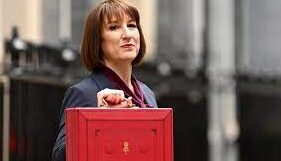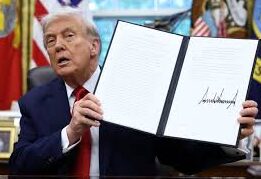It’s been a rocky return to Westminster. A wave of resignations, cabinet reshuffles, and nervous markets have set the stage for Rachel Reeves’ second Budget on November 26.
Reeves, firmly in place despite the deputy prime minister’s exit, announced the date in Birmingham while touring a housing site. Wearing a hard hat and wielding a trowel, she told apprentices, “We need you to get qualified and get more flats and houses up.” Her bricklaying skills may not have impressed, but her grip on the Treasury briefcase looked secure.
Over the summer, Reeves traveled the country meeting businesses and took a short break in Cornwall. Meanwhile, global bond markets wobbled. Some economists warned of a £50 billion “black hole” that could even push Britain toward IMF loans.
That fear sharpened this week as 30-year gilt yields climbed to levels not seen since the early days of Tony Blair and Gordon Brown. For some, it looked like decades of stability were unraveling. Critics suggested investors were losing faith in the government. Reeves disagreed, arguing the volatility was global, not UK-specific.
By the end of the week, she seemed vindicated. Yields fell back sharply after weak US jobs data. Bank of England Governor Andrew Bailey downplayed the issue, stressing that very long-term borrowing makes up only a small slice of government debt. Demand for UK bonds even hit record levels.
Still, the turbulence was a warning. With inflation high and doubts lingering after the government’s summer U-turns, markets will be quick to punish any missteps. Reeves’ team is preparing to argue that the answer is not more borrowing but a mix of higher taxes or tighter spending.
The Office for Budget Responsibility (OBR) will have a decisive say. Its forecasts on productivity and growth will determine how wide the Budget gap is and how painful the measures must be. Reeves hinted the OBR should focus on forecasts, not political commentary. The first take of their analysis is due later this month, just before her party conference speech in Liverpool.
Speculation over possible tax hikes is already swirling. Bank shares even dipped after rumors Reeves would adopt a think tank proposal on windfall taxes, published while she was on holiday. She dismissed that idea outright.
Spending limits are already locked in, meaning welfare is the main area where savings could be found. Reeves did not rule out reforms but stressed the priority was to get more people into work.
This Budget could be her chance to deliver long-term, pro-growth reforms to the tax system. But the final contents of the famous red box will depend on market moods, OBR spreadsheets, and how much political resistance she faces.
With eleven weeks to go, nothing is settled.






